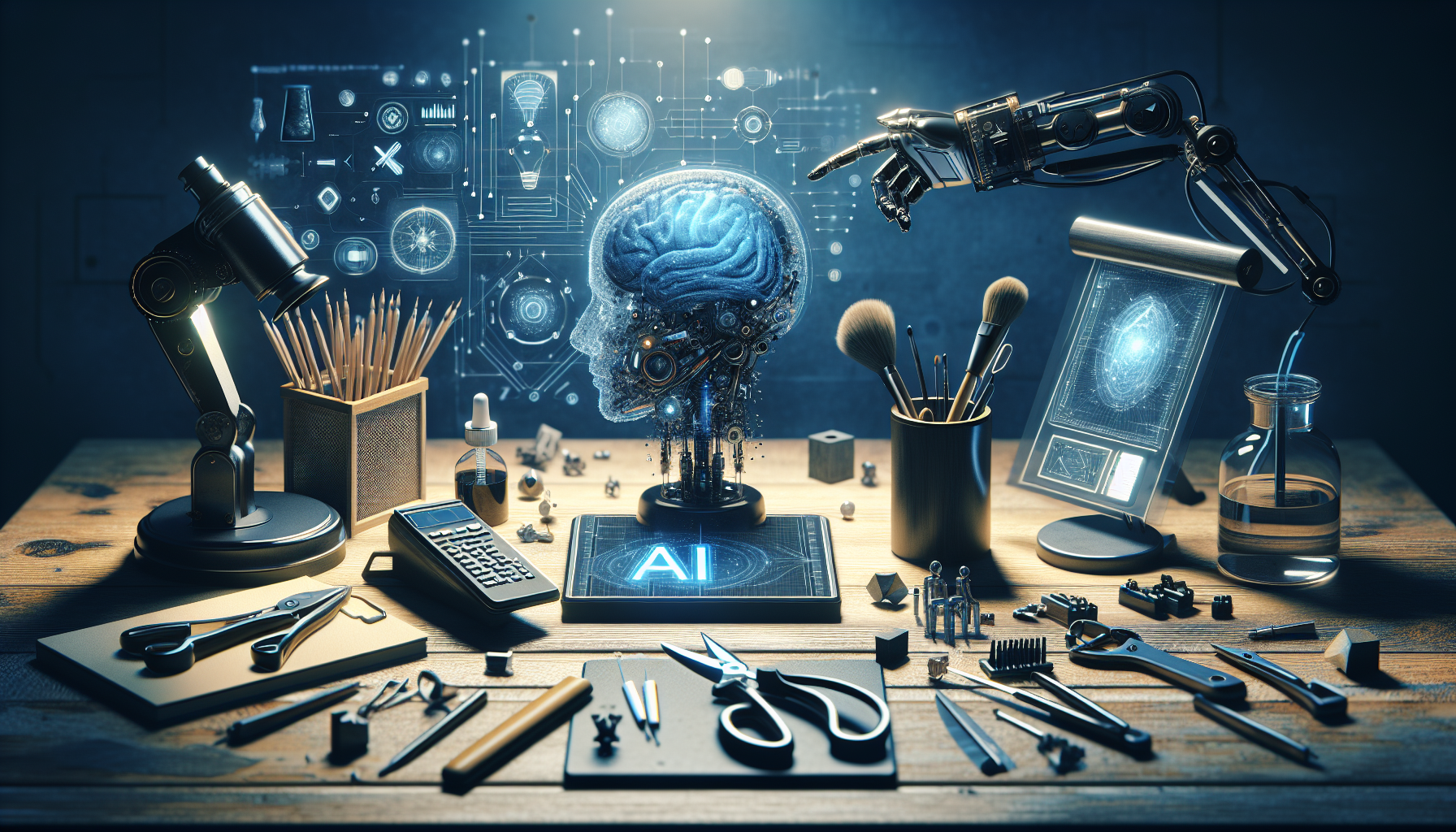
AI in Journalism: Automating Reporting, Fact-Checking, and the Case of the Missing Coffee Mug
November 16, 2025
Ever wonder if the robots are coming for your job? Fear not, dear journalists, for AI in journalism is less about replacing you and more about making sure you have more time to ponder the existential questions of life—like why your coffee mug always goes missing during deadlines.
Let’s kick off this myth-busting adventure by addressing the elephant in the newsroom: the fear that artificial intelligence will soon be writing our articles, fact-checking our sources, and possibly stealing our Pulitzer Prizes. While the latter might sound like the plot of a future dystopian novel, the reality is far less alarming and significantly more amusing.
First, let's clarify what AI in journalism isn't. It isn't a mechanical overlord sitting in a swivel chair, twirling its metallic mustache as it plots to overthrow human writers. Instead, AI is more like an enthusiastic intern—eager to assist but still needing your keen human insight to avoid mixing up "public" with "pubic" in a headline (which is a true story from a publication that shall remain nameless).
One of the most intriguing aspects of AI in journalism is its role in automating reporting. Imagine a scenario where you're a journalist covering sports. Suddenly, an AI tool is there to handle the mundane task of compiling scores, statistics, and player bios. This leaves you free to focus on the riveting human drama of the game: the underdog triumphs, the coach’s motivational speeches, and the inevitable Gatorade showers. AI tools can churn out brief news reports in seconds, but it's the nuances and the storytelling that remain the domain of the human journalist. After all, it takes a human touch to transform "Team A scored more points than Team B" into a tale of epic proportions.
Now onto fact-checking, the bane of every journalist’s existence. AI's potential here is truly revolutionary. Picture this: you're deep into an investigative piece, and your AI assistant is cross-referencing every claim with a database larger than a teenager’s social media footprint. It's like having a fact-checking sidekick who never sleeps, never eats, and never asks for a raise. However, just like your coffee mug, it occasionally vanishes when you need it most, proving that even AI isn't perfect. It can't understand context, sarcasm, or the subtle nuances of a politician's "truthiness." It needs the human touch to distinguish between fact and the kind of fiction usually reserved for bedtime stories.
Critics often argue that AI lacks the creativity and emotional intelligence of a human journalist. And they're right! AI won't shed a tear over a moving human-interest story or chuckle at the irony of a political scandal. It doesn't experience the adrenaline rush of breaking news or the satisfaction of a piece well-penned. It doesn't get writer's block, but it also doesn't get writer's euphoria. AI is there to assist, not replace, the uniquely human ability to interpret, empathize, and narrate.
Despite the technological advances, AI isn't capable of sipping coffee while pondering the deeper meanings behind a quirky article about AI itself. Yet, it can help journalists focus on the parts of their jobs that truly require human insight and creativity. By automating the more mundane tasks, AI enables journalists to delve deeper into investigative pieces, craft more engaging narratives, and perhaps even find time to locate that elusive coffee mug that's always disappearing.
So, is AI the future of journalism? In a way, yes. But not in the sense of replacing human journalists. Instead, it's more about enhancing human capabilities, much like a trusty sidekick in a superhero movie. It's the Robin to your Batman, the Watson to your Sherlock Holmes, or for the more culinary-minded, the ketchup to your fries.
The question isn't whether AI will take over journalism, but rather how we can harness its power to tell better stories, uncover deeper truths, and maybe—just maybe—keep track of our coffee mugs. As AI continues to grow and evolve, it invites us to question not just what it can do for journalism, but what journalism can become with AI as its ally. So, what’s your next move, human journalist?


